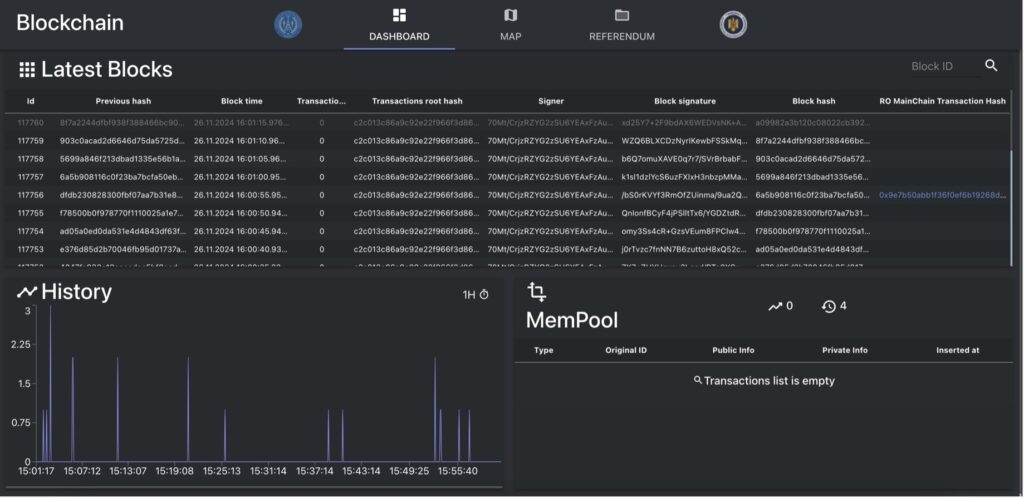|
Getting your Trinity Audio player ready...
|
Romania utilized blockchain to monitor its recent elections, becoming the first European country to utilize the technology to ensure free and fair national polls.
The country’s electoral body, the Romania Autoritatea Electorală Permanentă (ROAP), used blockchain in this year’s presidential election, which took place on November 24. Far-right candidate Călin Georgescu has taken an early lead.
ROAP established a dashboard where citizens could track the results live on a public ledger. The election body partnered with the country’s Special Telecommunication Service (STS) to maintain the dashboard, adding an extra layer of transparency and accountability. STS says the new system “strengthen(s) the resilience of the Romanian electoral system, by ensuring traceability and increasing trust in data integrity.”

“Moreover, for the first time, the digital fingerprints of this data will also be anchored in the European Blockchain Services Infrastructure (EBSI) blockchain network developed by the European Commission, thus ensuring an additional level of security and traceability,” STS added.
EBSI is a peer-to-peer network built by the European Commission. It spans all 27 member states, Norway and Liechtenstein. It connects over three dozen public institutions from these countries to enable seamless data sharing on a decentralized network. Development commenced in 2018 with the European Blockchain Partnership (EBP) creation.
In Romania’s implementation, data sets collected at the polling stations are recorded as a transaction on the blockchain. The transaction contains both public information and a hash of private data, whose privacy is guaranteed throughout the entire process. The network’s nodes are hosted by dozens of national and regional authorities, as well as academic institutions, to ensure decentralization and alleviate opportunities for alterations.
Blockchain voting has been implemented elsewhere across Europe but has mostly been limited to smaller elections, such as political party polls or municipal elections. However, other countries have been exploring blockchain voting beyond Europe for years. In 2018, Sierra Leone became the first country to implement the technology in its national polls.
While several pilots have been conducted globally, large-scale implementation is still hindered by the limitations of most blockchain networks, especially in terms of scaling. Romania, for instance, has 18 million eligible voters, and over half of this number participated in the election. Only a blockchain with unbounded scaling can cater to such an audience. In Romania’s case, the country turned to a private network due to the deficiencies of most public blockchains.
BSV blockchain remains the only public blockchain that can scale to meet enterprise needs. With next year’s Teranode upgrade, the network will process over a million transactions per second, cementing its position as the most capable decentralized network globally.
Unlike private blockchains, BSV guarantees transparency and immutability. Its overlay networks allow enhanced privacy for sensitive applications, such as voting.
Watch: Putting gaming and election on blockchain

 02-14-2026
02-14-2026 




